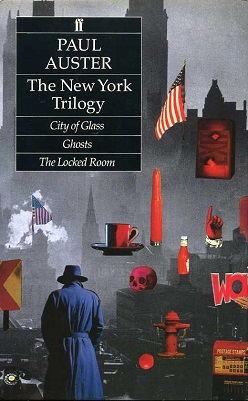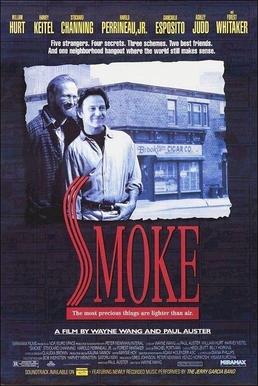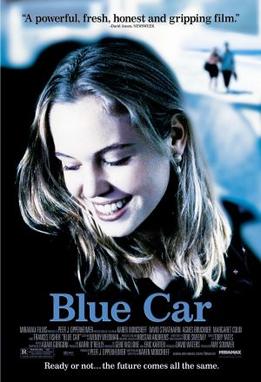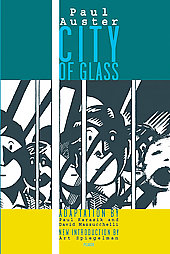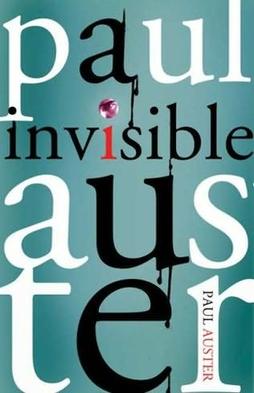Plot summary
The novel is the story of Archie Ferguson told in four different versions. [2] Each of the seven chapters in the book is divided into four parts (1.1, 1.2, 1.3, 1.4, 2.1... etc.) which represent the different versions of his life. Ferguson (as he's known in the book) grows up with the same Jewish, middle-class parents, Stanley and Rose, as well as many of the same friends, including Amy Schneiderman, his girlfriend/friend. However, the relationships change with each Ferguson version. Due to the individual circumstances, his lives take very different paths. [5]
His different lives diverge from mundane matters – in which suburb, out of several plausible choices, did his parents choose to buy a house after his birth? But from that develops in each life a different school in which Ferguson would study, different schoolmates and teachers, different girls he would meet as a teenager, and also different conditions for the development of his father's business – altogether accumulating into four lives significantly different from each other. The four divergent stories follow his home life as well as college years, his love life and political ideas. Depending on the version of his life, Ferguson experiences various identity issues.
In one life, he loses his father at the age of seven, leaving him deeply scarred. In another life, the schemes of his father's crooked brothers cause the collapse of the family business, destroying his father's dream of financial success – but the family manages to live a reasonably happy though not affluent life. In yet another life, the father got rid in time of these nasty brothers and built up a commercial empire – but Ferguson is sickened by a life of nouveau riche conspicuous consumption and becomes totally alienated from a workcaholic father who works twelve to fourteen hours a day and has little time or energy left for his family. In one life Ferguson's mother runs a modest suburban photo studio, in another life she has become a well known artistic photographer whose framed photos are exhibited in prestigious American and European galleries, and in a third life she is a dashing press photographer venturing into the midst of race riots to get exclusive action photos.
In all his lives Ferguson is deeply in love with the formidable and incomparable Amy Schneiderman, but only in one life does she become his steady girlfriend. In another life they only have a brief affair and then she moves elsewhere, while in a third life his divorced mother marries her widowed father, suddenly making them into step-siblings and ruling out any possibility of an intimate relationship between them. In most lives he is strictly heterosexual, but in one life a series of experiences makes him bisexual and he increasingly displays a preference for men – influenced by living with a glamorous expatriate bisexual American woman based in Paris. In another life he is involved in a very different way with an older woman, his former high school teacher with whom he has an intensive affair – which ends unhappily. In one life the school principal threatens to expel him over an article he wrote to the school paper, denouncing American Imperialism in Latin America; in another life he is politically indifferent, which causes his beloved Amy to reject him in disgust; in yet another life he and Amy together get involved in the anti-Vietnam War movement, but break up when she becomes a white-hot revolutionary while he remains skeptical of the chances of a Socialist revolution in America.
The story is set in Newark, New Jersey, New York City, Paris and London in the 1950s and 1960s. As Archie grows through young adulthood, events such as the Attack on Richard Nixon's motorcade in Caracas, Venezuela, Vietnam War, Civil Rights, the Kennedy election and assassination, the Northeast blackout of 1965, white flight from Newark, the 1968 Columbia University protests and the reaction of American Jews to the Six Days War are all covered.
Though none of Ferguson's lives is a precise autobiography, Ferguson shares quite a few features of Auster's own life: birth in 1947 to Jewish middle-class parents, growing up in New Jersey – specifically, in Newark and its suburbs, left-wing views, and spending some time in France (Ferguson does it in various lives, under different circumstances in each). Like Auster himself, Ferguson in all his lives feels at home in New York City and has an abiding interest in French culture and language.
Reception
At the time of its publication in January and February 2017, the book received mixed reviews, and with widely divergent opinions. Tom Perrotta of the New York Times wrote “4 3 2 1 is a work of outsize ambition and remarkable craft, a monumental assemblage of competing and complementary fictions, a novel that contains multitudes." Michelle Dean, writing for the Los Angeles Times , was harshly critical of the book's execution, referring to it as a "slog", a "doorstopper" and a "bad joke". [1] On the other hand, in The Seattle Times , David Takami praised Auster's execution as "brilliantly conceived", a "brilliant compendium of the tumultuous 1960s", with many "descriptive gems" too numerous to name:
In fact, the development and mingling of four versions of Archie Ferguson not only illuminate and enhance his character, it gives the storytelling the power of enchantment that sustains the reader through the length of the book. [2]
The novel reached #13 on the February 19, 2017 New York Times Best Seller list. [6]





